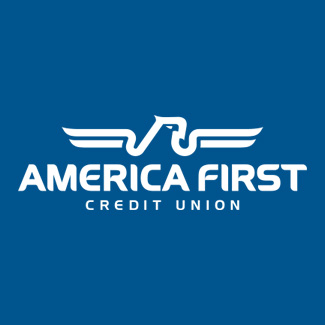Credit unions offer higher interest rates and better fees, helping you make the most of your money. In the past, only employees of a specific company or members of an organization could join a credit union. But today, there are nationwide credit unions that make it easy for anyone to join and take advantage of these great benefits.
Like banks, no two nationwide credit unions are the same. Therefore, it’s always best to compare your options and find the credit union with the best benefits if you’re eligible for multiple credit unions.
9 Best Nationwide Credit Unions
Here are the best nationwide credit unions to help you make the most of your finances.
- Connexus Credit Union
- Navy Federal Credit Union
- Consumers Credit Union
- PenFed
- SkyOne Federal Credit Union
- Alliant
- America First Credit Union
- First Tech Federal Credit Union
- Blue Federal Credit Union
1. Connexus Credit Union 
Best For: Checking Account APY
Connexus Credit Union has more than 430,000 members and operates in all 50 states. Connexus partners with some of the country’s largest companies, including BMW, Honeywell, Liberty Mutual Insurance, TSI Incorporated, and Kraft.
Connexus is committed to giving back to its members with low rates and fees on mortgage, car, and personal loans. They also strive to help with members’ financial goals by offering high APYs on checking accounts and other deposit products.
Connexus uses its surplus funds to offer lower loan rates and continually upgrade the services offered to its members.
Consumers who use their checking accounts will receive some of the highest interest rates if they opt-in to e-statements and spend at least $400 on their debit card monthly.
Connexus Money Market funds pay as much as 4.01% APY, and their Xtraordinary Checking Account pays as much as 1.75% APY on certain balances, helping you make your money work for you.
Pros
- Has over 5,000 shared branches
- Has over 54,000 fee-free ATMs
- Offers special discounts and higher rates throughout the year on different products
Cons
- Members pay an inactivity fee after 90 days of no activity on a checking account with a balance of $100 or less
- Savings account APY is low compared to most credit unions
- Dividends compounded monthly
Learn more:
2. Navy Federal Credit Union 
Best For: Military Members, their Families, and Household Members
Navy Federal Credit Union has become a popular nationwide credit union. It’s open only to families of the armed forces. Today it has 12 million members, but its mission has never changed; it remains 100% focused on serving military families.
Navy Federal Credit Union states they save members as much as $473 a year and the credit union offers a $1,000 closing cost credit to any member borrowing a mortgage.
Pros
- Family and household members of military members are eligible too
- Offers many digital banking services
- Has over 30,000 free ATMs
Cons
- You must have military DoD eligibility
- Has only 350 branches worldwide
- Interest rates aren’t as high as other credit unions
Learn more:
3. Consumers Credit Union 
Best For: Rewards Checking Account
Consumers Credit Union is the best nationwide credit union to consider if you’re looking for a credit union open to almost anyone. All you need is a one-time $5 membership payment, and you can become a member and take advantage of their great products.
Consumers Credit Union has been in business for over 90 years, and since its opening, its focus has always been on consumers. They’ve been there through good times and bad and have always had their clients’ backs. They proudly celebrate diversity and cater to clients of any race, age, or background.
Pros
- Anyone can join with a $5 membership fee
- Offers a large selection of products, including a Health Savings Account
- Has one of the largest fee-free ATM networks
Cons
- You need a high balance to earn interest
- They charge overdraft fees, which most credit unions don’t
Learn more:
4. PenFed 
Best For: Large Network of Fee-Free ATMs
PenFed Credit Union was founded in 1935, and today is the second-largest credit union in the nation. They have 2.9 million members and $35.3 billion in assets. Originally, the credit union was only open to military members and their families, but today it’s open to anyone.
PenFed offers almost every product you’d find at a bank, including checking, savings, IRAs, credit cards, mortgages, car loans, and student loans.
A popular product they offer is the Access America Checking Account, which earns as much as 8 times the national rate in interest. The only catch is you must maintain a $500 daily balance.
Pros
- Has low minimum deposit requirements
- No monthly fees
- Has a large network of 85,000+ fee-free ATMs
Cons
- Minimum deposit fees are high
- Charges a high non-sufficient funds fee
Learn more:
5. SkyOne Federal Credit Union 
Best For: Those Who Work in the Air Transportation Industry
SkyOne Federal Credit Union has more than 40,000 members and $792 million in assets and a focus on helping families achieve financial peace.
Founded in 1949, SkyOne offers a variety of products, including interest-bearing checking, savings, money market, and credit cards. They also offer mortgage and car loans.
SkyOne offers some of the most competitive rates on Share Certificates (similar to a CD), helping you make your money grow faster.
In addition to their product offerings, they have a wide selection of free educational tools to help you make important financial decisions for your future.
Pros
- Offers a wide selection of financial products
- Has a free mobile banking app
- They network with thousands of credit union branches to provide members with easy access
Cons
- You must meet their membership requirements, which can be strict
- Most of their accounts have fees, but they are low
Learn more:
6. Alliant Credit Union 
Best For: Digital Banking
Alliant Credit Union is one of the largest credit unions in Illinois and the nation with $18 billion in assets. Today, they have over 760,000 members nationwide.
Alliant operates differently than most credit unions, as it’s online only. Their online accounts pay impressive interest rates, paying as much as 22 times the national average, and you can bank anywhere using their mobile app.
They don’t charge overdraft fees and reimburse all ATM fees, so members don’t have much to lose!
Alliant members earn interest on all balances, including 3.10% on high-rate savings accounts with at least a $100 balance. This makes it possible for anyone to earn interest, even members who don’t have much money to deposit.
Pros
- Competitive rates on almost every product
- User-friendly mobile app
- Has access to over 80,000 fee-free ATMs
Cons
- No physical branches to visit
- Hard to get a hold of customer service
Learn more:
7. America First Credit Union 
Best For: Savings Options
America First Credit Union is a Utah-based credit union that offers services in several states nationwide.
Founded in 1939, today America First has over $16 billion in assets and 1 million members. They have many products for members, including checking, savings, and money markets, and their eligibility is simple to achieve.
In addition to a wide selection of products, they offer competitive rates, making it a good option for those eligible.
Pros
- Membership is open if you live or work in the communities the credit unions are located
- Has a wide selection of accounts, including many different checking and savings account options, such as a wedding account
- Has a mobile app
Cons
- The branches are mostly located in western states, including Arizona, Idaho, Nevada, and Utah
- The money market account has a high minimum balance requirement
8. First Tech Federal Credit Union 
Best For: West Coast Residents
First Tech Federal Credit Union is a credit union that caters to people working in the technology industry. First Tech was founded in 1952 by people working at Hewlett-Packard and Tektronix. They also work closely with large companies, such as Nike, Hewlett-Packard, Microsoft, Amazon, and more.
They offer customized products that serve their members and also have many business services, which isn’t common for most credit unions.
First Tech’s specialty is the high rates they pay on their Share Certificates, paying members as much as 3.25% APY on short and long-term SCs.
Pros
- Has one of the widest selections of products for members to meet their needs
- Offers some of the most competitive APYs
- Takes only 5 minutes to join
Cons
- Only has locations in 8 states, Colorado, California, Georgia, Massachusetts, Idaho, Texas, Oregon, and Washington
- You must work for one of the companies they partner with
9. Blue Federal Credit Union
Best For: Perks Program
Blue Federal Credit Union has been in business for over 70 years. It started as Warren Federal Credit Union to serve those on the Air Force base. Since then, it has grown and merged with Community Financial Credit Union to provide an even more powerful platform for more than 115,000 members worldwide.
Blue Federal offers the largest selection of products and services with minimal fees and high APYs. In addition, the ability to conduct in-person banking transactions at thousands of branches nationwide makes it easy to see why Blue Federal Credit Union is so popular.
Blue Federal Credit Union has a large suite of programs, including checking, savings, credit cards, personal loans, home loans, investment portfolios, and investment banking. There’s something for everyone at Blue Federal Union and at a fraction of the cost of a traditional bank.
Pros
- Offers one of the largest selections of products
- Offers rates as high as 2 – 5 times higher than the national average
- Access to thousands of partner credit unions nationwide
Cons
- The ATM network isn’t as large as some credit unions
- You may find higher rates elsewhere
Which Credit Unions are Nationwide?
Nationwide credit unions are available in multiple states and are usually tied to a company with offices in multiple states, sometimes all 50 states.
They typically work with partner credit unions in other states to give more people a chance to become credit union members and enjoy the benefits.
On the other hand, local credit unions have a smaller audience because they are open only to local residents that meet the criteria to belong.
Credit Union vs. Bank
Choosing a credit union over a traditional bank can be scary, but there are many benefits.
Banks and credit unions have many similar features, but also many features are different. The most prevalent difference is banks are for-profit, and credit unions are nonprofit financial institutions owned by their members.
This means banks must make a profit, aka charge higher fees, whereas credit unions keep their rates and fees lower, passing the savings to their members.
In addition, there are other major differences between credit unions and banks.
- Products: Banks typically have more product offerings than credit unions, especially in the commercial lending industry. Credit unions focus on checking, savings, and credit cards. Some may have a few investment opportunities and loans, but most credit unions minimize their offerings to keep costs low.
- Rates and Fees: Banks (especially brick-and-mortar banks) usually have higher rates and fees than credit unions. It’s always best to look at all your options, including banks and credit unions, to see who has the best option. Online banks sometimes compete more with credit unions than brick-and-mortar banks, but every situation is different.
- Technology: Credit unions often lag behind banks when it comes to technology. National credit unions, however, are getting better with digital banking options because of the need to reach customers throughout the country. Banks, however, typically have more advanced options.
Frequently Asked Questions
Are Credit Unions Insured?
Like banks have FDIC insurance, credit unions have the National Credit Share Insurance Fund, which insures deposits up to $250,000 per depositor. So if a credit union were to go bankrupt, you’d still get your money back.
Do Credit Unions Pay More Interest Than Banks?
It’s important not to assume a credit union pays more interest than a bank. Traditionally, they do have better rates, but each credit union has different thresholds and interest they’ll pay. Always ask detailed questions about what’s required of you to get the highest interest rates so that you can compare your options.
Do Credit Unions Have ATMs?
Credit unions may have ATMs at their physical location, but most partner with other credit unions. This is called the shared branching network, which allows credit union members to access ATMs nationwide. This is similar to banks belonging to a specific ATM network, allowing bank customers to have fee-free ATM transactions at other banks.
What Types of Accounts Do Credit Unions Offer?
Each credit union offers different services, but most offer at least a checking, savings, and money market account. In addition, some credit unions offer investment banking, business banking, and a variety of loans, including home loans, student loans, and car loans.
If you need something specific, look through the credit union’s offerings before joining to ensure you’ll get the products you want. Also, read the requirements to ensure you can meet them to take full advantage of the credit union’s benefits.
Are the Best Credit Unions Also the Biggest?
Size has nothing to do with whether a credit union is the best. The right credit union for you is the one that offers the highest rates and lowest fees, given the type of accounts you need and how much you can deposit.
Look for each account’s required deposit tiers and how the interest changes. For example, for some, the more you deposit, the more interest you earn. But some credit unions max out the high-interest rates after a deposit of $500, paying a lower interest rate on any remaining deposits.
Do Credit Unions Build Credit?
If you borrow a loan or take out a credit card with a credit union, they can help you build credit. The key is to use the credit correctly. Don’t overextend your credit lines or pay your bills late. Instead, use your credit wisely, and you’ll build a stronger credit score by proving that you can handle your financial obligations.
Can I Be a Member of More Than One Credit Union?
Yes, you can belong to more than one credit union, but you must satisfy the requirements of each one before you can belong. For example, some people join a nationwide credit union and a local credit union.





Comments are closed.
Comments are closed here.